Zhanhao He
Preserve Pre-trained Knowledge: Transfer Learning With Self-Distillation For Action Recognition
May 01, 2022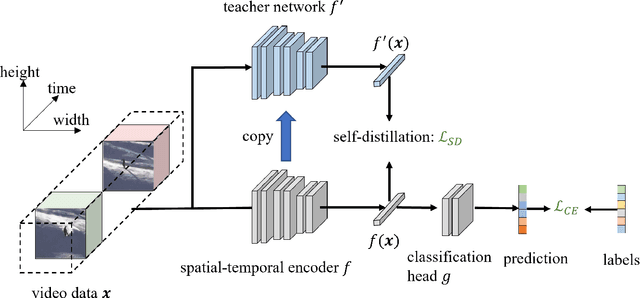
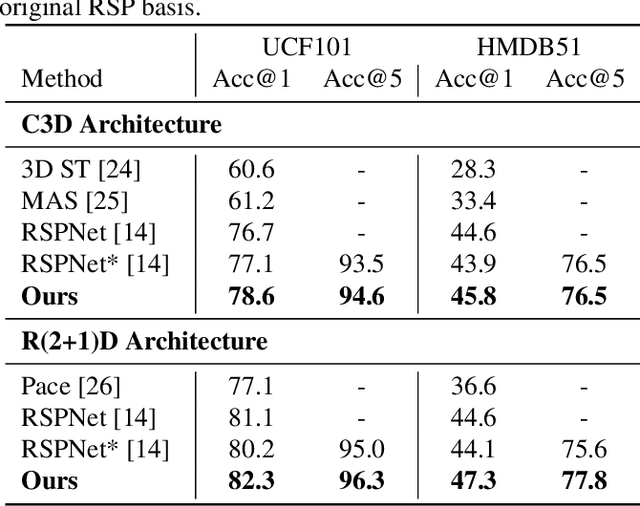
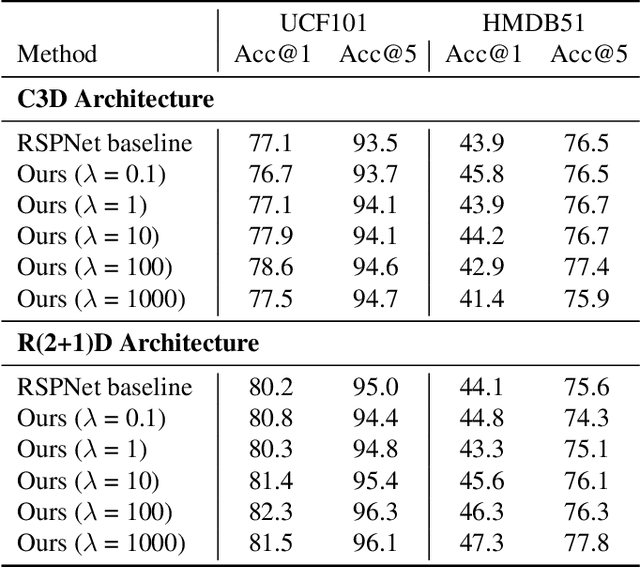
Abstract:Video-based action recognition is one of the most popular topics in computer vision. With recent advances of selfsupervised video representation learning approaches, action recognition usually follows a two-stage training framework, i.e., self-supervised pre-training on large-scale unlabeled sets and transfer learning on a downstream labeled set. However, catastrophic forgetting of the pre-trained knowledge becomes the main issue in the downstream transfer learning of action recognition, resulting in a sub-optimal solution. In this paper, to alleviate the above issue, we propose a novel transfer learning approach that combines self-distillation in fine-tuning to preserve knowledge from the pre-trained model learned from the large-scale dataset. Specifically, we fix the encoder from the last epoch as the teacher model to guide the training of the encoder from the current epoch in the transfer learning. With such a simple yet effective learning strategy, we outperform state-of-the-art methods on widely used UCF101 and HMDB51 datasets in action recognition task.
Human-Centered Prior-Guided and Task-Dependent Multi-Task Representation Learning for Action Recognition Pre-Training
Apr 27, 2022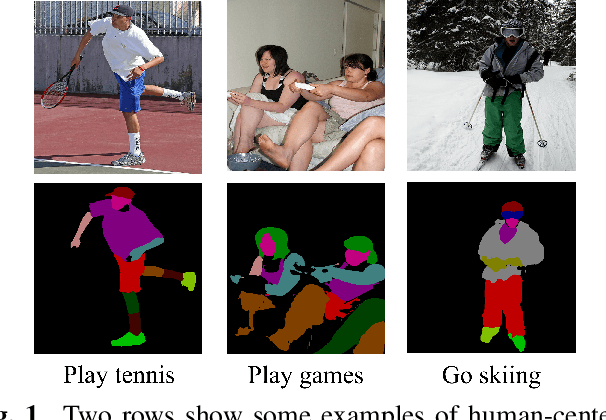
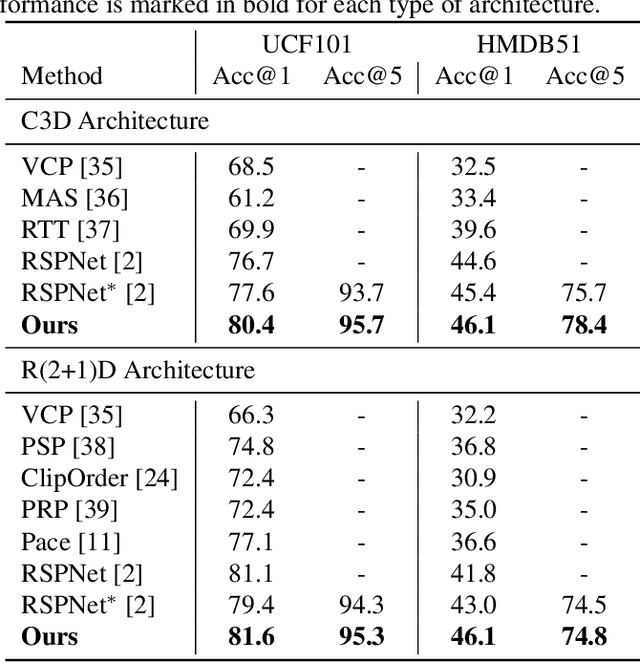
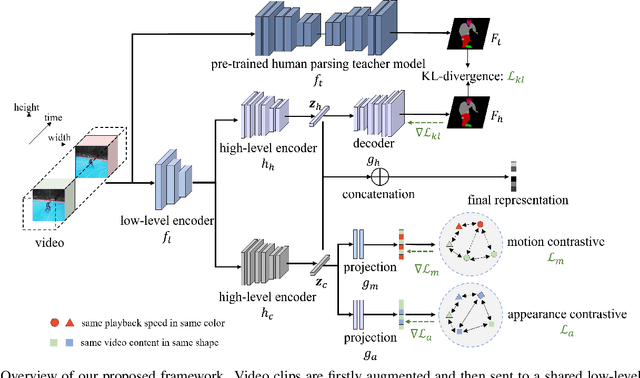
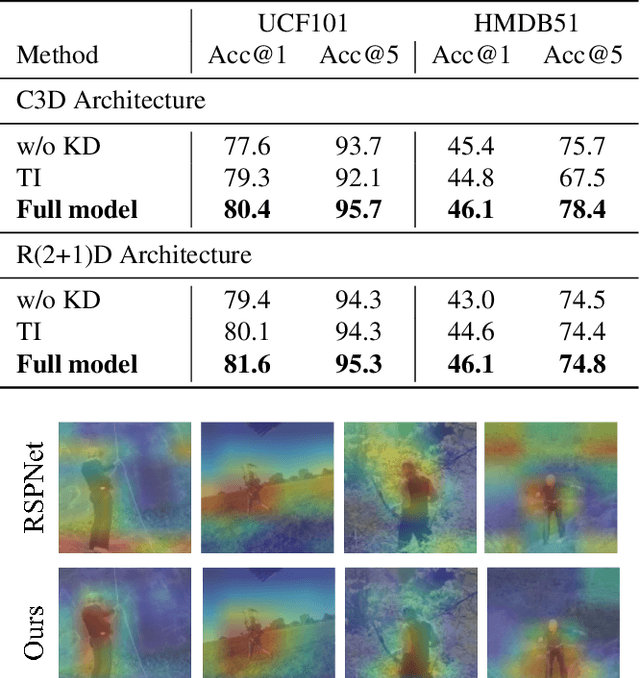
Abstract:Recently, much progress has been made for self-supervised action recognition. Most existing approaches emphasize the contrastive relations among videos, including appearance and motion consistency. However, two main issues remain for existing pre-training methods: 1) the learned representation is neutral and not informative for a specific task; 2) multi-task learning-based pre-training sometimes leads to sub-optimal solutions due to inconsistent domains of different tasks. To address the above issues, we propose a novel action recognition pre-training framework, which exploits human-centered prior knowledge that generates more informative representation, and avoids the conflict between multiple tasks by using task-dependent representations. Specifically, we distill knowledge from a human parsing model to enrich the semantic capability of representation. In addition, we combine knowledge distillation with contrastive learning to constitute a task-dependent multi-task framework. We achieve state-of-the-art performance on two popular benchmarks for action recognition task, i.e., UCF101 and HMDB51, verifying the effectiveness of our method.
 Add to Chrome
Add to Chrome Add to Firefox
Add to Firefox Add to Edge
Add to Edge